|
Patsy Calliste, wife of Dr Leroy "Black Stalin" Calliste, flanked by San Fernando mayor Junia Regrello, left, and Local Government Minister Kazim Hosein at the unveiling of Dr Leroy Calliste street, after converting part of Lord Street, San Fernando by the San Fernando City Corporation, Tuesday. PHOTOS BY LINCOLN HOLDER A street-sign unveiling in honour of veteran calypsonian Leroy "Black Stalin" Calliste created a mini Carnival-like atmosphere in San Fernando on Carnival Tuesday. The 79-year-old five-time Calypso Monarch did not attend, for health reasons. But despite this year’s cancellation of Carnival, Dr Leroy Calliste Street came alive with Carnival characters like moko jumbies and blue devils dancing to live drumming and music from a portable radio. The renamed street (formerly Lord Street) runs from the corner of Coffee Street to Paradise Street. Members of the San Fernando City Corporation hosted the ceremony in a nearby car park. Police blocked off part of the street, near the corner of Mucurapo Street, and redirected traffic. San Fernando mayor Junia Regrello said Calliste was born on Lord Street on September 24, 1941, epitomising the phrase "Born in the heart of San Fernando." He said Calliste began his illustrious career as a limbo dancer and pan player before joining Southern Brigade Calypso Tent in 1959. He moved to the calypso tents in Port of Spain, where Lord Blakie christened him The Mighty Stalin, for his fearless style. Regrello listed several of Calliste’s songs, among them Beat My Tune, The Caribbean Man, Better Days are Coming, Black Man Feeling to Party and Sufferers. "His work will remain etched in the archives for our scholars, educators and students to research," Regrello said. "His appreciation of the art form, the people, his country and the Caribbean have connected him in such a way that he is loved both by his and the current generation. His music has and is simply timeless." Several calypsonians attended, among them Brian London, Weston "Cro Cro" Rawlins, Steve "Ras Commanda" Pascal, Winston "Gypsy" Peters, Roy Cape, TUCO head Lutalo "Brother Resistance" Masimba and Terri Lyons. Rural Development and Local Government Minister Kazim Hosein and former culture minister Joan Yuille-Williams also attended. Calliste’s wife Patsy, 74, sang and danced to his music. She recalled that they first met at Harris Promenade and often hung out at Lord Street. Back then, he was called the Mighty Stalin. "We used to hide here and hold hands. So this street was marked a very long time. I am very proud. "Our families never knew about our dating days on Lord Street. This was our hiding space when we were young. Our love really started on Lord Street," she said. On the renaming of the street, Patsy said it was long overdue. As for Stalin's health, Patsy said,"He is doing good. He is at home right watching it live (on social media). Veteran calypsonian Peters commended the organisers for honouring Calliste, saying the event was of great significance for the pan and calypso fraternities. These fraternities, Peters said, have undergone a lot of stress and deprivation. "Both went through the same type of situation, a situation where today in this country some people still scorn some calypsonians. To this very day, some people do not want their sons and daughter to have anything to do with people who play pan," Peters said. "Many years ago, if we were unveiling a plaque, that plaque would have said: 'No calypsonian or dog allowed.'" Peters recalled first meeting and performing for Calliste in 1962 at the age of ten in Mayaro. Peters, who wrote his first song at four, said he sang an original composition. Peters, the chairman of the National Carnival Commission, commended the universities for awarding honorary doctorates to cultural icons, among them Calliste, Cape, Slinger "Mighty Sparrow" Francisco and Len "Boogsie" Sharpe. Cape recalled meeting Calliste in 1977, adding, "Leroy trusted me with his music, his career, taking bookings and handling his money. To his family, I feel as if I am family. Up to today, I am amazed at the work he has done, not for self but for the country." Kazim said Calliste would go down in history as one of the best calypsonians in south Trinidad and said he would like to see other icons honoured similarly. He promised to speak with the corporations on the proposal. Source: Newsday Feb 16, 2021
0 Comments
Laura Roberts-Nkrumah grew up in St. James, Trinidad and Tobago, a community rich with plant life.
“There were many fruit trees,” she says. It was this proximity to nature’s bounty that fostered her early attraction to flora and food, an interest that would eventually lead to her outstanding career as a scientist, agriculturalist, educator and Caribbean pioneer in the study and cultivation of breadfruit. Professor Roberts-Nkrumah is Professor of Crop Science and Production within the Department of Food Production at UWI St Augustine’s Faculty of Food and Agriculture (FFA). During her more than 30-year career she has trained many students in the science and production of various crops. “My primary career goal as a member of academic staff, and former student of this faculty, was to make a difference, in at least in some small way, to the food and agriculture sector in the Caribbean. I have shared this goal with my students; their training at the FFA was about much more than certification; it was about capacity building for the development of our countries and region”, she says. Professor Roberts-Nkrumah is most well-known for her work in breadfruit. She has raised the stature of this neglected and underutilised crop, which was traditionally important for food security in the Caribbean but stigmatised as ‘slave food’ and largely ignored by research. Her work includes expanding the range of cultivars (different varieties) in the region through importation, and establishing a germplasm collection at UWI St. Augustine Campus. The collection has been evaluated for growth, development, seasonality, yield, disease resistance, nutritional content and, more recently, there has been DNA characterisation. Studies have been conducted on propagation, orchard management, as well as on consumer acceptance, contribution to food security and farm income. “Most persons are unaware that there are different types of breadfruit. This collection is an educational and research resource that is critical if the commercial potential of breadfruit for human nutrition, and for other methods of utilization, for example, medicine is to developed beyond its current level in T&T and the wider Caribbean”. Based on her work in breadfruit, Professor Roberts-Nkrumah was commissioned to prepare a strategic plan for the development of a breadfruit and breadnut industry in St Kitts and Nevis. She initiated, secured external funding for, and co-convened the first International Breadfruit Conference, which was held in Trinidad and Tobago in 2015. She was also invited to contributeto a review chapter on breadfruit production for the prestigious publication, Horticultural Reviews. “A number of new breadfruit products, as diverse as chips, wines and beauty products are already being produced on a commercial scale elsewhere. My greatest satisfaction would be the emergence of a sustainable breadfruit industry in the region based on innovative products, which is entirely possible with our people’s creativity. Support for multi-disciplinary research and consumer education will be two key requirements” Apart from her work in this area, Professor Roberts-Nkrumah is a pioneering woman in science, who for many years has operated at the highest level of her field. Data from UNESCO’s Institute for Statistics shows that less than 30 percent of the world’s researchers are women, and only around 30 percent of all female students select STEM-related fields in higher education. Recognising the importance of women in the sciences, the UN General Assembly made February 11 the annual International Day of Women and Girls in Science. Professor Roberts-Nkrumah says many women inspired her own journey into the sciences, starting with her grandmother: “She was recognised as a champion farmer in Tobago. My grandmother was an independent and strong woman who continued to farm even in her 70’s. I have fond memories of the delicious fruits, cocoa tea, and high quality cassava, sweet potatoes and pigeon peas that she grew and our family enjoyed.” She admires scientists such as Professor Margaret Sedley, a botanist, whose work was closely linked with the development of the avocado industry in Australia and Professor Ruth Oniang’o, a pioneer in food science and nutrition studies on indigenous crops in Kenya. She was most inspired in her career, however, by Professor Lawrence Wilson, a leader in research on tropical root crops at The UWI, who taught her at both undergraduate and graduate levels. “I admired his insight and creativity as a scientist,” she says. “He instilled in me the significance of basic scientific knowledge for understanding crop physiology and addressing crop production issues.” Professor Roberts-Nkrumah’s legacy of work also includes outreach activities with crop producers and nurseries, and the general public throughout the Caribbean. Apart from providing hands-on training, several manuals and fact sheets have been made available, including manuals on breadfruit propagation and orchard management, which were commissioned by the Food and Agriculture Organisation and are available online. Her work has produced 117 publications, among which is a book titled The Breadfruit Germplasm Collection at the University of the West Indies, St Augustine Campus, a reference text for stakeholders in the breadfruit sector, from scientists, to growers, sellers and consumers. When asked about her career success, she credits her family life: “I consider myself to have been blessed by my family background, which provided stability, focus, a high value on education, strong work ethic and strong Christian values. All of these and the commitment to service were reinforced at school.” As a wife, mother, and daughter, she has had to balance work with family life and responsibilities. This was not always a simple matter but unconditional support from her husband and children helped to make it possible. “They have accompanied me in the field on many occasions,” she says. “As much as possible I limited my travelling for field research in the Caribbean to the school vacation period, when the family could also travel with me. This has paid dividends as I now see the children’s own gardening initiatives and hear them offering ‘on target’ advice to their peers.” Even though she is a scientist, as a young student Professor Roberts-Nkrumah loved English Literature as well. However, her desire for the outdoors pushed her towards science and agriculture. And though she has experienced numerous challenges during her career -- from the very limited scientific literature on breadfruit, to the difficulties of data collection in the field, to having to balance research with her heavy teaching load -- her work has revolutionised the breadfruit sector and has the potential to make a major impact on regional food security. Perhaps more importantly, she followed her passion, found her mission and built a career. “The application of science to food and agriculture is a most worthwhile endeavor. It’s about knowing what you were born to do. Focus, faith and willingness to work for the benefit of others, even with obstacles, will always be rewarding – “Non sine pulvere palmam” (Not without the dust the victory). Source: UWI Campus News, Feb 15, 2021 Miss Palmiste - Jeanine Brandt is the new Miss Trinidad and Tobago 2021 and will now represent our nation at the Miss World 2021 Pageant.
STILL GOING: Rita Smyke, who turned 107 in December, surrounded by her relatives at Craignish Village, Princes Town on Wednesday last week. - MARVIN HAMILTON RITA Smyke, considered the matriarch of the Merikin community was celebrated by four generations of her descendants at her 107th birthday in Princes Town on Wednesday last week.
Smyke, who outlived her siblings, husband and one of her five children, turned 107 last December. Owing to the death of one of her sons, Jimmy, the festivity was postponed. The celebration was held under the patronage of Minister of Sport and Community Development Shamfa Cudjoe, who joined the celebrations virtually. She also sent a huge bouquet of flowers for Smyke which was presented on her behalf by Curwin Callender who serenaded Smyke. “It is indeed a tremendous privilege and honour to join the Merikin community as we celebrate the 107th birthday of Rita Smyke, the oldest female Merikin and matriarch of our Merikin community,” Cudjoe said. “'Congratulations' doesn’t seem adequate to capture the true essence of what this milestone means as it is no ordinary feat to live to 107 years.” Describing her as a “walking history book,” Cudjoe said Smyke has been witness to evolution and revolutions, experiencing two world wars, the Spanish flu and now the covid19 pandemic. “Oh, what stories you have to tell. I wish that I could spend the time to sit at your feet and listen.” Smyke thanked God and the principles and values inculcated in her by her late grandmother for having lived a long and productive life. Commenting on the scourge of crime, she said growing up, she was able to close her door and leave her children home and nothing would happen to them, “because we had a neighbourhood where we lived in love.” Her second daughter, Jackline Cooker, said her mother was and still is the essence of human kindness. She said their home was the first cinema in Lothian’s Road, Princes Town, where they lived, as they had the first television in the community. “Mummy’s door was always open to every child in the neighbourhood. We had a simple home, but Mummy found room for every child to sit and watch television. “Mummy was the neighbourhood lawyer, she was the neighbourhood doctor and if you gave her a chance she would have been the neighbourhood mechanic." She recalled if someone had a medical issue, Smyke would leave the children at home, with a list of assigned task, to accompany that person to the clinic or hospital. Cooker said she and her siblings were often angry when her mother would leave them in order to help someone, and only understood as they grew older, this is what God expects of his children and how people should live with and treat others. Cooker noted too, at that time, neighbours looked after them as they would their own children. Their father died in 1979. Up until she was 75, Cooker said, her mother would walk from the top of Cipero Street, San Fernando to a street near T&TEC (approximately 1.5 km or 0.9 miles) to take care of an elderly lady. “Then she would go to Manahambre and Craignish to take care of the family. When Dad wasn’t working she would wash and iron for other people to help her husband take care of their children. “What a wonderful mother. What a wonderful human being. She worked hard in the home, she worked hard for her church – the Seventh Day Adventist. God has truly blessed her and her generation.” In addition to her five children, Smyke has 13 grandchildren, 30 great-grandchildren and eight great-great-grandchildren, with a ninth on the way. (L-R) At the reception of the vaccines are Prime Minister Mia Amor Mottley, Senator Dr Jerome Walcott and Honorary Consul of India in Barbados Dr Philomena Mohini-Harris. Barbados has received the 100,000 doses of AstraZeneca vaccine from India in nine boxes and the plan is to share the doses with Trinidad and Tobago, Guyana and some other Eastern Caribbean territories.
Their Prime Minister, Mia Mottley, Health Minister Lt Col Jeffrey Bostic, Foreign Affairs Minister Senator Dr Jerome Walcott, Public Health Specialist and National Coordinator of the National COVID-19 Vaccination Campaign Dr Elizabeth Ferdinand and Honorary Consul of India in Barbados Dr Philomena Mohini-Harris, as well as members of the Barbados Defence Force were on the tarmac to meet the plane and receive the vaccines on behalf of Barbadians. PM Mottley addressed the nation earlier tonight, just after 7:30 pm in a televised and streamed press conference from Ilaro Court, saying that she thanks India's Prime Minister Narendra Modi for ensuring that members of the Commonwealth including Barbados has received vaccines. Pleased, she said that she can confirm Barbados "took possession just hours ago of nine boxes of vaccines, 100,000 doses of vaccines for 50,000 persons of the vaccine the Oxford AstraZeneca vaccine to aid in our battle with COVID-19... "These are parts of the first batch of a potential 200,000 doses for Barbados." Having made mention of the hope to attain more vaccines to cater to the entire population or the majority as government works towards herd immunity, Prime Minister Mottley reiterated the wish to purchase the remaining 100,000 from the government of India. Despite still being in negotiations for the second batch, today, the PM said: "Thank you to India. Truly this has been a very special moment for our people, and I really want to thank Prime Minister Modi for his quick, decisive and magnanimous action in allowing us to be the beneficiary of these vaccines which they have given us for our people and indeed in sending it in the shortest possible time to aid in our fight. We believe this is a special moment." Six boxes of vaccines were sent on to Dominica from the Grantley Adams International Airport in Barbados, and PM Mottley said it is Dominica's hope as well to get a second batch in six to eight weeks too. The two prime ministers, Mottley and PM Roosevelt Skerrit of Dominica, worked together to make these donations a possibility and they have decided that other members of the Organisation of Eastern Caribbean States (OECS) should be beneficiaries too. This is according to Prime Minister Mottley, who went on to state that: "In Barbados' case, Trinidad and Guyana who have helped us over the last year, believe you me nobody has gone through this without seeking assistance and therefore both of us have decided that some of the vaccines that we have received will go to our brothers and sisters in those territories within the OECS, with Dominica taking care of some, Barbados doing some and Trinidad and Guyana as a result of the work that has been done closely with our people in Barbados." Source: The Loop, Feb 10, 2021 Today we had a really enlightening day meeting with farmers who are not just talking about agriculture but those who practice and make a living from it.
What was particularly pleasing to me is to meet young people among the farmers. If they are supported and encouraged, agriculture has quite a future in Tobago. Tobago is fortunate in that it has some of the best soils. The Tobago farmer can support not just the population in Tobago, but can make a considerable contribution to the 1.2 million in Trinidad. We are expecting that some Tobago farmers, existing ones and new ones, will benefit from the provisions that we have made in the budget and that with the assistance they get it will result in an increased food production. Source: FB page of the Hon. Dr. Keith Rowley, October 2020 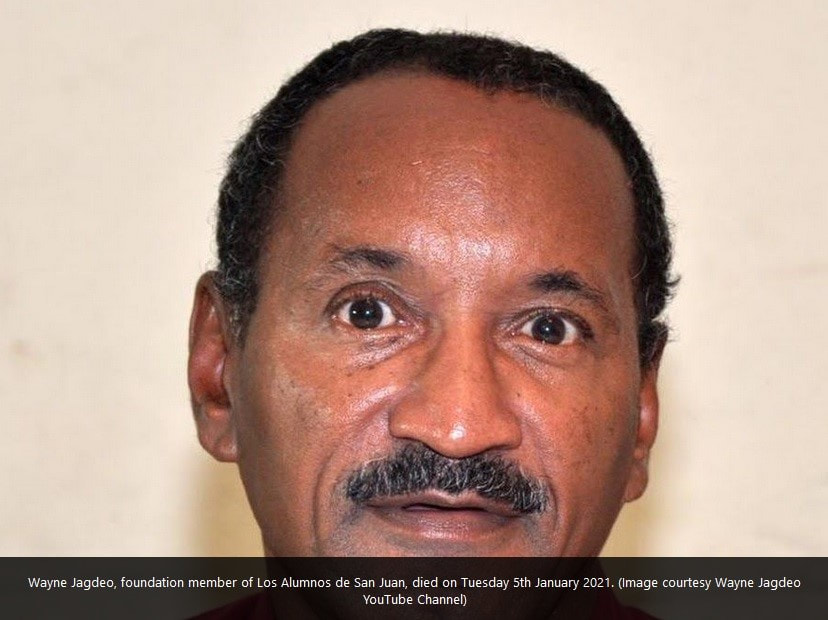 The parang fraternity is mourning the deaths of two of its icons within the space of two days last week Wayne Flores, the founder of San Jose Serenaders and Flores de San Jose, as well as the last founding member of the National Parang Association of Trinidad and Tobago (NPATT), died on Thursday. Two days earlier, pannist, retired teacher and founding member of Los Alumnos de San Juan, Wayne Jagdeo, died at his home in Couva, where he had been receiving palliative care after being diagnosed with lung cancer. Flores’ widow, Flores de San Jose lead singer, Sharlene Flores, broke the news of his passing in a social media post. She wrote: “Dear family, friends, treasured fans and supporters, both locally and internationally, once again I bring you all sad, painful, heartbreaking & devastating news of the passing of my dearly beloved husband Wayne Flores of 38 years marriage. At this time, words are extremely difficult and painful for me to express. Waynie (lovingly called by those who knew and loved him), left us peacefully in his sleep at home on the night of Thursday, January 7th, 2021, surrounded by his loving and dedicated family, which we give praise and thanks to the almighty for granting us this mercy. Once again, our hearts are broken into a million pieces, but with God’s mercy, we will all get through this. Words cannot express how much I love and miss my husband. “Wayne was not only a loving, kind, caring, selfless, humble person, but he was the most wonderful husband, father, grandfather, father in law, brother in law, uncle and a very loving brother, who would put others first before himself. He was a pioneer and legend in the culture of Parang music, who contributed years of hard work, sacrifice and dedication to the development of the culture of parang music in Trinidad and Tobago. He was a great musician who loved his craft dearly.” Funeral arrangements for Flores have not yet been announced. There will be a viewing for close relatives of Jagdeo at Clark and Battoo on Tragarete Road, Port-of-Spain, from 2 pm to 6 pm today. The funeral service will take place tomorrow at the Church of the Assumption, Long Circular Road, Maraval at 10 am followed by cremation at the Port-of-Spain Crematorium at 12.30 pm. The service will be live-streamed by Wack 90.1 FM and on Los Alumnos de San Juan Facebook Page. In the final years of their short lives, Richard De Souza and Everard Sookharry lost their way. Completely.
One enslaved by bay rum, the other by cocaine, they drifted about Chase Village, Chaguanas, working odd jobs for sympathetic business people who remembered them in their youth. De Souza plucked and butchered chicken for the depots, and Sookharry sold vegetables and weaved coconut leaf hats that he hawked roadside. Both men, who were friends, were all but homeless by then. So when they hustled enough money, they would find their way to the space under the flyover spanning the Solomon Hochoy Highway. And with vehicles rumbling by above, and traffic flashing by below, these modern-day trolls would lose themselves in their intoxicants, safe from the police. There, they would overnight on cardboard beds, forgetting everything, or maybe remembering their finest moment, 30 years ago, when they had the awestruck attention of the entire country of Canada. Two weeks ago, when Prime Minister Dr Keith Rowley gave one of his long-winded news conference addresses—this one on the matter of the Venezuelan migrants—he reminded the population that Trinidadians had done the same back in the ’80s and ’90s, when they jetted off to North America, in a time before a visa was needed. And having arrived on vacation, locals claimed asylum and refugee status, alleging all manner of atrocity had been inflicted upon them by the authorities on the island. Rowley mentioned that the desperation was such that there was even a case of two Trinis landing in Canada without the airline ever knowing they were aboard. The Trinis he was taking about were De Souza and Sookharry. This is their story. That Monday morning on February 19, 1990, Sookharry, then 26, and De Souza, 19, strolled into the VIP Lounge of the old Piarco Airport, a drinking spot next to the waving (and weeping) gallery that was so close to the departing aircraft that you could be blown over when they taxied away. The two were in coveralls, since they had labouring jobs in construction. In the bar, they had an unobstructed view of the tarmac, and of the BWIA Lockheed Tristar sitting there. They knew the aircraft was being prepared for Flight 1011, bound for Pearson International, Toronto. Both had dead-end lives in Trinidad. Both knew Canada, having returned from there the year before after withdrawing their refugee claims, which were among an estimated 14,700 made by Trinidadians back then. They took a drink, pondered, and decided to see the Canadian winter. The men left the airport, walked east to the perimeter fence, easily scaled it and walked to the plane, skipped up the stairs and was into the cabin before anyone noticed. Plan A was to just start up and fly away. So they went into the cockpit and began punching on knobs and flipping switches. That didn’t work out. So they decided to hide. De Souza tried fitting into a cupboard in the galley. Sookharry considered the overhead luggage compartment. About then, the janitors came aboard to prep the plane for the passengers. De Souza grabbed a clipboard and pretended to be doing a checklist. Their presence on the plane was plausible. Both were in “maintenance” outfits. The janitors grew suspicious so De Souza and Sookharry disembarked. Plan B was then hatched. The main landing gear of the Lockheed Tristar, when the wheels are deployed, leaves a huge cavity in the plane’s underbelly near the wings. They crawled in, and waited. The passengers began filing in. The aircraft powered up, and began rolling. The men would later tell a story of screaming along with the jet engines, bodies pressed against the vibrating wall of the wheel well as the plane fought gravity, then the moment of lift-off, and of seeing the ground fall away, of the terror of knowing there was no turning back when the land gear retracted and the massive wheels came within inches of them, and of the space going dark, leaving a smell of burnt tyres. ‘An insane thing for anyone to try’ At least 113 people have attempted to stow away in the landing gear of an aircraft between 1947 and 2015 in the United States alone. Eighty-six of those people died. Some turned to human ice cubes. Some died from oxygen deprivation and tumbled to earth when the wheelbay doors opened. De Souza and Sookharry made it. They cut into a rubber and fibreglass reinforced panel and fit themselves into a cubbyhole in the wing. It took six hours to get to Toronto. The jet flew at 10,000 metres. The temperature dropped to -40°C. The oxygen at that altitude is about six per cent of what is available at ground level. They survived hypoxia, nitrogen gas embolism and decompression sickness. The plane landed in Toronto at 4.30 p.m. And our Trinis stayed hidden until the passengers got out with the crew. De Souza would later explain that when they thought it was safe, they would drop out of the wheel well, and into the Canadian snow. Only to find the plane’s captain doing an inspection of his craft. “Hey, where did you guys come from?’ De Souza was asked. “We come from Trinidad,” he answered. They were taken away by airport police to the hospital for a check-up, then sent to a detention centre. The men fought deportation for more than a year, in and out of Immigration Court in Toronto, while Trinidad and Tobago reeled from the July 1990 attempted coup and its aftermath. During that time, they were celebrated. “It’s an insane thing for anyone to try,” said the spokesperson for Lockheed. Every small detail of their journey was chronicled. They had smoked cigarettes up there while hiding near a wing filled with fuel. They had left some “bandana” rags, a pair of sunglasses, and someone had defecated. In the end, both were deported, returning to Trinidad as Chase Village celebrities. De Souza would henceforth be given the name B-Wee, and Sookharry the nickname Nasa. They would never fly again but tried fixing their lives, relatives and friends told the Express this week. Both men were intelligent, skilled, and street smart. Each had a son. But the drugs and drink won. Everard Sookharry died ten years ago from his drug use. He was in his 50s. Last December De Souza died from multiple organ failure from the same abuse. Both were found near their flyover. The Canadian media had speculated as to how the men could have survived the trip. They must have fallen unconscious and basically went into hibernation (a poikilothermic state), and snoozed all the way across from the south Caribbean, Lockheed suggested. Some years before his death, the Express had asked De Souza how they survived. He laughed. It was rum. They had stowed away with a bottle of Forres Park puncheon. Source: Saturday Express, Jan 1, 2021 I greet you, the people of the Republic of Trinidad and Tobago – very confidently today – at the start of the new year — 2021.
It is with a firm buoyancy that I extend New Year’s Greetings from the Government of the Republic of Trinidad and Tobago, my family, and myself as Prime Minister. The first of January 2021 is not just the start of the new year – but it is the day in which we begin to set out what we can see as a new beginning. There are those among us, the nay-sayers, who will cry out immediately, casting doubts that this year will be just an extension of the awful nightmare of 2020. My government with its “boundless faith in our destiny” holds, instead, to its faith in the people of Trinidad and Tobago, seeing only hope and opportunities. I know that we all wish we could leave the challenges of 2020 behind, but its realities are before us. Globally the dual shocks of the COVID-19 pandemic and the collapse in energy prices have had debilitating impacts. The International Monetary Fund (IMF) has estimated that the world economy has suffered a -4.4 percent decline. In some countries, the economic decline and the lockdown resulted in job losses on an unimaginable scale, with commodity and other markets grinding to a halt. That double blow coupled into the challenges of 2020, hindering projected economic growth, resulting beyond belief in millions of people losing income, others their lives and livelihoods. The health, economic, and psycho-social impact on people’s lives have been enormous, causing strains on governments, just like ours, to extend its policy reach, so that “No one will be left behind”. The way out, the IMF describes, as “a long and difficult ascent”, fraught with many risks. However, the COVID-19 vaccines are considered, as the light in the tunnel, but those scars in the global economy will take many years to heal. Nonetheless, the IMF’s World Economic Outlook projects a 5.1 percent growth in 2021, which is expected to level off at 3.5 percent in the medium term. It projects that Trinidad and Tobago will see a 2.6 percent economic growth this year, as compared to the -5.6 of 2020. But the real good news is that we have lived to see another year, and 2021 springs eternal hope for us as a people. I believe the worst is behind us. With the rollout of the COVID-19 vaccine, global demand and economic activity are expected to return; improvements are expected in world energy prices, commodity markets; employment in the restaurant, entertainment, and distribution sectors are expected back slowly. Today, I assure you the Government will do its best to continue to steer this country to a place of growth and prosperity with the aid of our Roadmap to Recovery. The new beginning I speak of will be a re-orientation of the economy, a transition into the digital age, which will create opportunities for small businesses, and increasing employment in this area. Opportunities are also identified in manufacturing, energy services, green technology and agriculture. The government, in its role, will be paying attention to emerging innovations, predicting future trends, attracting collaborations, facilitating the re-design of work processes and re-purposing of organisations. With food security at the top of the list on the way forward. Government has already approved a $500 million agriculture stimulus package for 2021, in addition to regular budgetary allocations. The use of digital technology in agriculture will be increased with a focus on decreasing our food import bill. The development of downstream agriculture industries and creating a strong agri-business eco-system are also on the agenda. Income tax earners will also have a bit of an ease on their pockets. Anyone earning $7,000 per month or less will be exempt from income tax, as the personal tax allowance has been raised from $72,000 to $84,000. It will take effect in January 2021. One of two new fast ferries is set to arrive in January to service the sea-bridge. The journey to Tobago will be less than three hours and become an integral part of a visit to Tobago. We are also working towards establishing and increasing our renewable energy usage. Government has already signed an agreement with Lightsource BP and Shell for the construction of a 150-megawatt solar power plant, which would represent 10 percent of the country’s total power generation capacity. The development of this area will bring the country within compliance of our commitment to the Paris Agreement. As our country steadily transforms into a modern State, we will celebrate the diversity of our talent and innovative ideas, seeking to market our creativity to the region and the world. Let us allow our true spirit of unity to guide us as a people, moving us forward as one, not being dominated and motivated by race, colour or class — but focusing on our similarities, our shared heritage, our promised future, our sense of patriotism, and love of country. Today, let us invest in our children’s future, creating a society whose singular goal is to meet the needs of all of its peoples, through the creation of opportunities for all. Happy New Year.  Last year, Angelys Marelys Boada Munoz left behind her children in the failing city of Cumana, Venezuela, and joined the exodus. She travelled across the peninsula to the mainland’s Gulf of Paria coast and paid her way to Trinidad, following the uncounted thousands who came to the island by boat, driven by hunger and hopelessness. Angelys found work, hawking vegetables for a vendor in Freeport, her salary paying for a bare apartment near the Solomon Hochoy Highway, the rest sent home to the children, aged nine and 11. She was a ghost when she got here, undocumented and, like so many others, trying every day to earn money by whatever means —sales, skills, sex—while trying to avoid police attention, detention, and deportation. Her lifeline came in May of 2019, when the State called on Venezuelans, here legally and illegally, to register for the card that would allow them to stay and work for a year, for at least the minimum wage. Angelys received her registration card months later. Then the Covid-19 pandemic happened, and the world’s reaction to the virus with a 99 per cent survival rate, destroyed the lives of countless. The lockdowns, regulations and restrictions in Trinidad and Tobago disproportionately affected the working class, and many of the lowest wage earners ended up jobless and desperate. Angelys was among the migrants left on the fringes, people who could not leave, had nothing to go home to, and no opportunities here. The vendor could not afford to keep her. Downward spiral Six months ago, Angelys began a downward spiral. This 32-year-old single mother, who worked at a horse riding school in that other life, ended up dead on the fast lane of the Solomon Hochoy highway last week Monday. Police were told she walked into the path of a pick-up truck heading north at daybreak, and then was run over by a second vehicle. Before the highway was blocked and her body covered, the Facebook videographers captured close-ups of what remained of her partially unclothed, broken body. The traffic and inconvenience her body caused became the topic of discussion for those caught up in it. “Lovely way to kick off your morning,” commented one. Angelys had no relatives in Trinidad. But the Express found a girlfriend who led us to the dead woman’s brother and sister in Venezuela. As of Saturday, six days later, they had not told Angelys’ children that she was dead. How could they? It’s Christmas all over the world. This woman was loved. “Here she was very dear, because she was a very humble and hard-working girl. She helped those who needed…because she offered everything to those who didn’t have. Good sister, good daughter and good mother. Friend of the whole world,” her sister communicated with the Express using an online translation tool. “She had two children, one 11 and nine years old. Her life plans were to give them a decent home,” said her brother, who added he was told of what had happened to her in her final months in Trinidad. “She was not working there because of the pandemic. And some evil men took away her desire to continue living. They kidnapped her, they mistreated her, they did much, much damage and then they left her abandoned and she went mad, on her way to places that led her to her death,” he said. Mental health issues Those who remember seeing Angelys in Freeport said she appeared to have mental health issues over the past few months, seen on the streets shabbily dressed, late into the night, blocking cars, and walking into properties. The police were called at least once and she was taken to the Couva Hospital, then transferred to the San Fernando Hospital. Those holding registration cards are entitled to emergency medical services. A mental health evaluation is not considered an emergency. In any event, her torment would have been lost in translation. The Express was told that she fled the hospital, and would stay at random places, just trying to stay alive, the Express was told. The night before her death, she stayed late at a back road “party’’, then stumbled away, people in the area said. What she did in those final hours, however, no one could say. Her body is now on a slab at the Forensic Science Centre in Federation Park. The girlfriend identified her by a tattoo. The autopsy result will be a formality. What happens next with Angelys’ body, no one can say. Her siblings are asking authorities in Trinidad and Tobago for information on how the body of their sister can be returned to Venezuela for a funeral. Whether this is possible is unlikely. Bureacracy maze Co-founder/coordinator of the La Romaine Migrants Support (LARMS) Angie Ramnarine told the Express the family could expect a maze of bureaucracy made more complicated by the pandemic restrictions, and that fact that Angelys had no relatives in Trinidad. The most likely outcome would be that Angelys Marelys Boada Munoz’s “unclaimed” body would be the State’s responsibility, and taken away to a crematorium for disposal. Ramnarine says there have been instances where deceased Venezuelans caught in the document/illegal mess in Trinidad and Tobago got a more dignified end, when friends paid a funeral agency. This was bound to happen “in the absence of a clear policy framework of what to do and now (migrants) are to be handled. There were never clear parameters laid out,” said Ramnarine. Angelys’ siblings just want to know what to do. They have to tell her children what happened to Mama. |
T&T news blogThe intent of this blog is to bring some news from home and other fun items. If you enjoy what you read, please leave us a comment.. Archives
May 2025
Categories
All
|
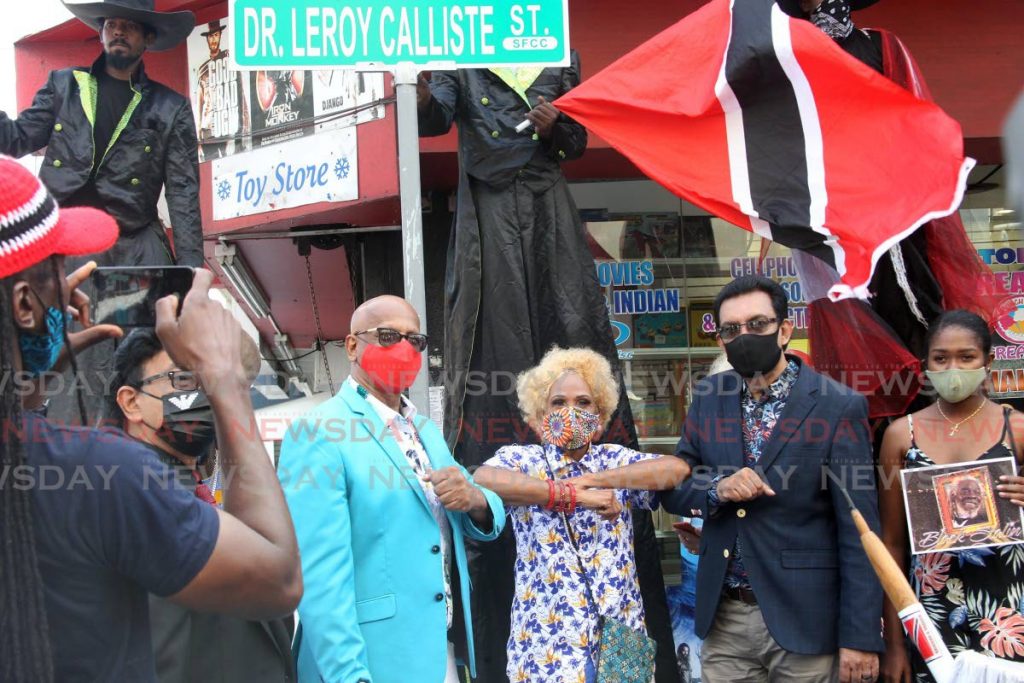

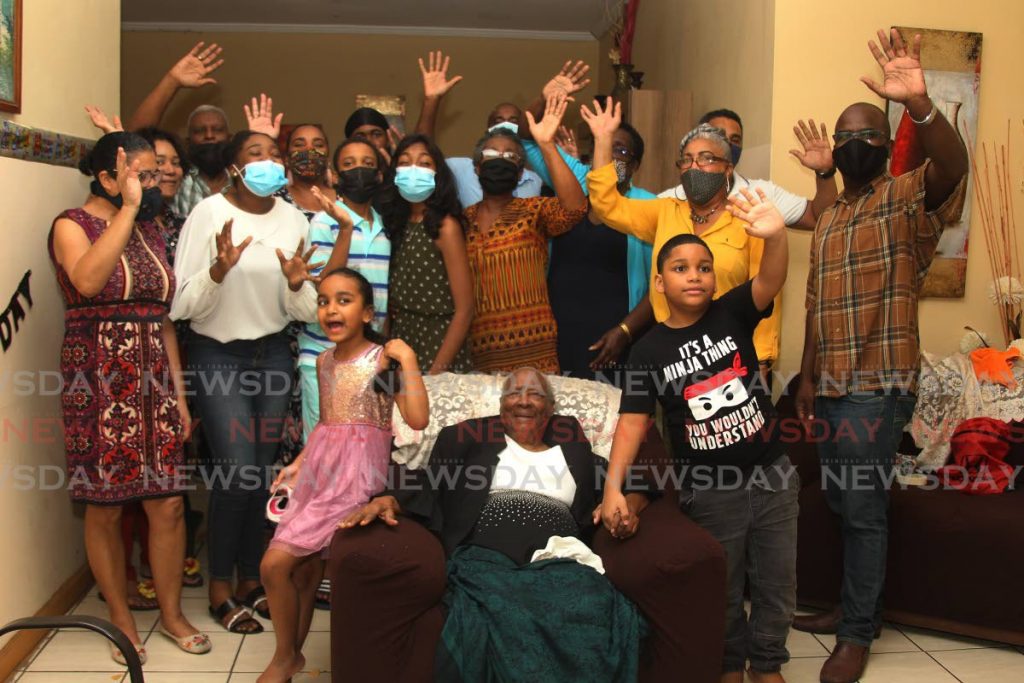
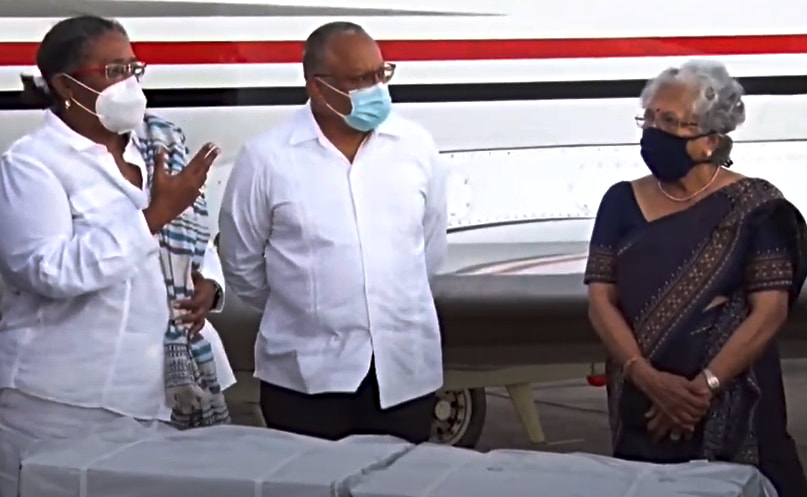
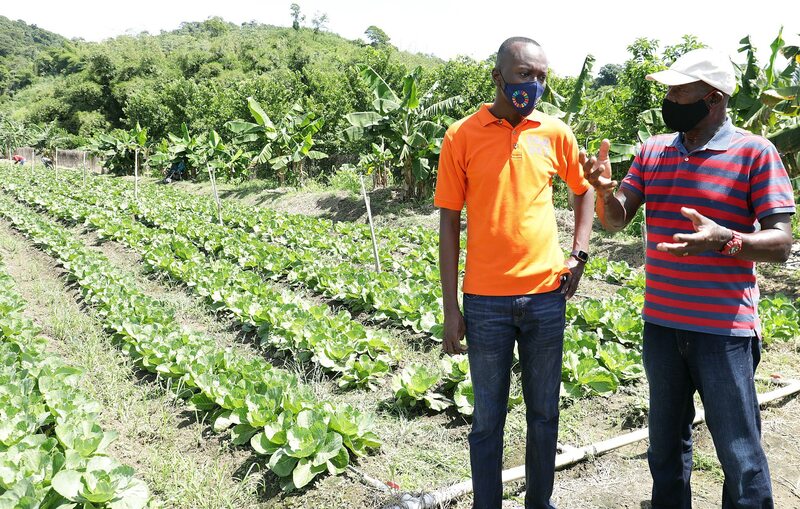
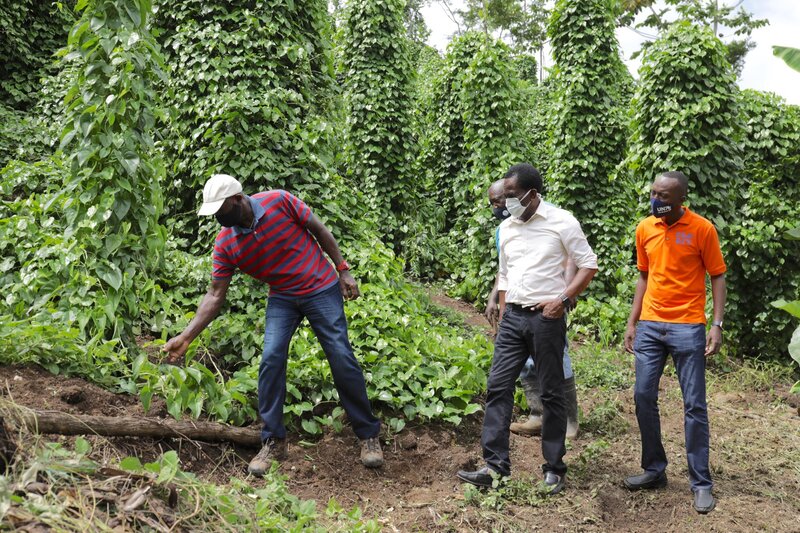
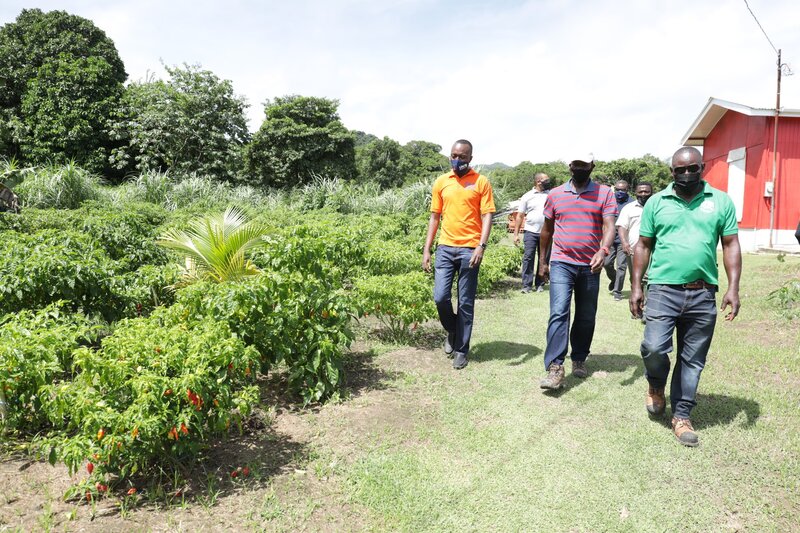
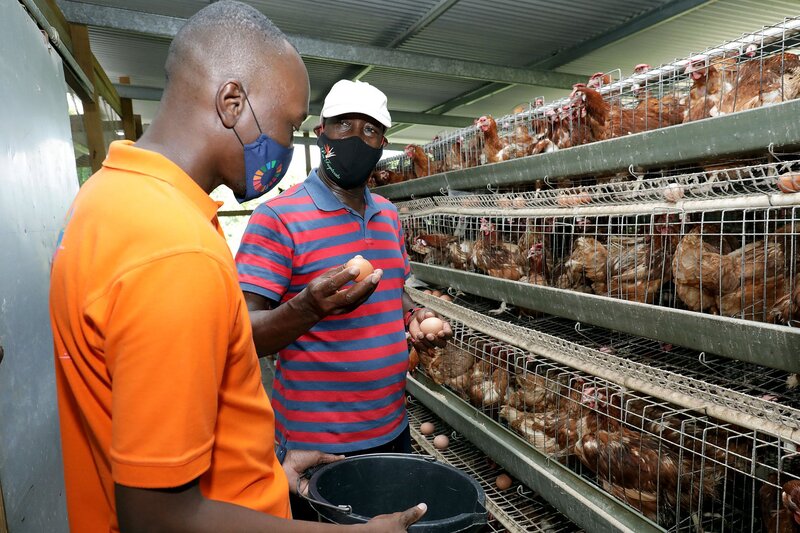
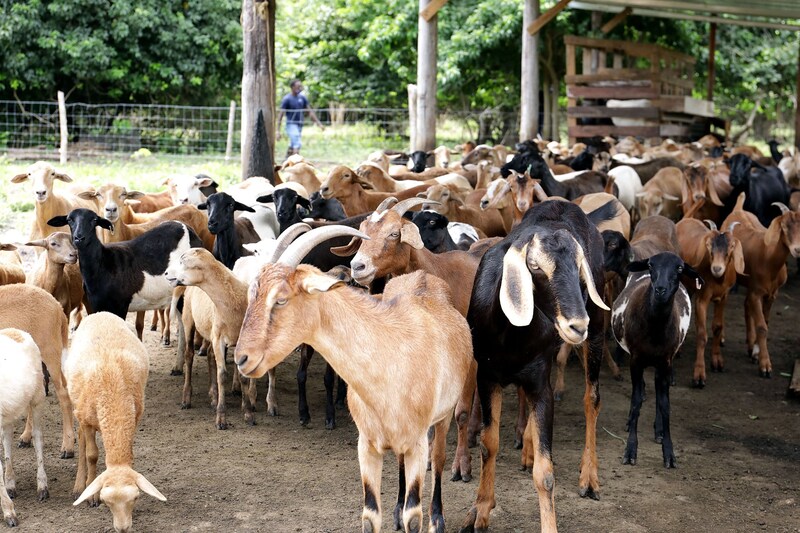
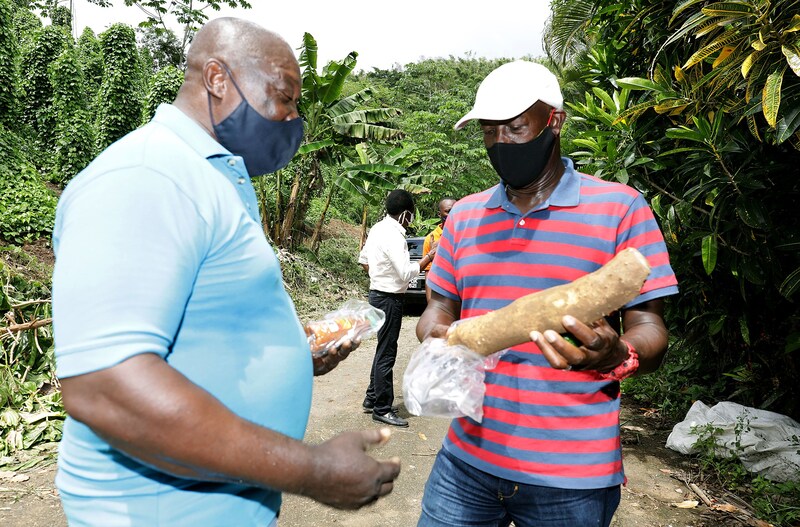
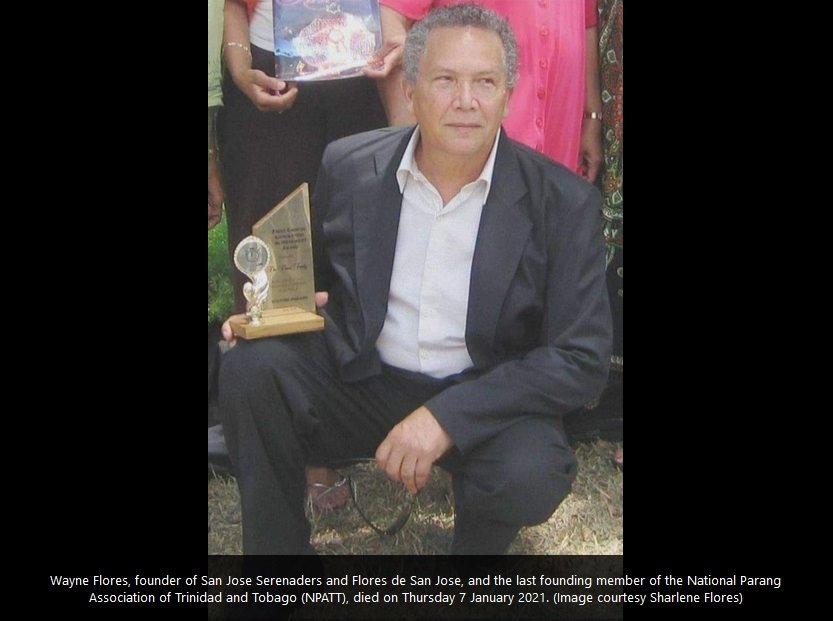
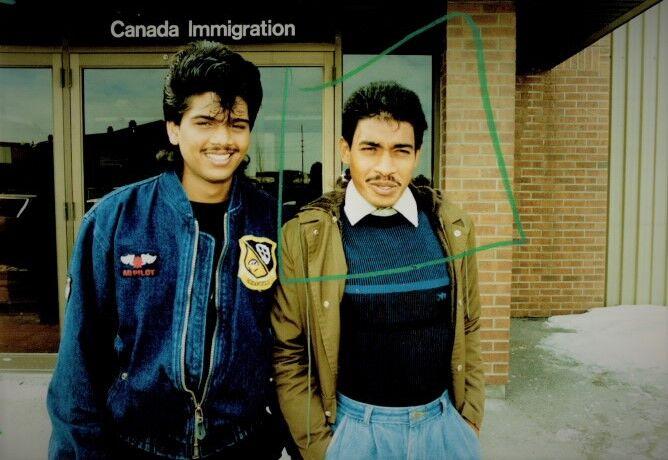
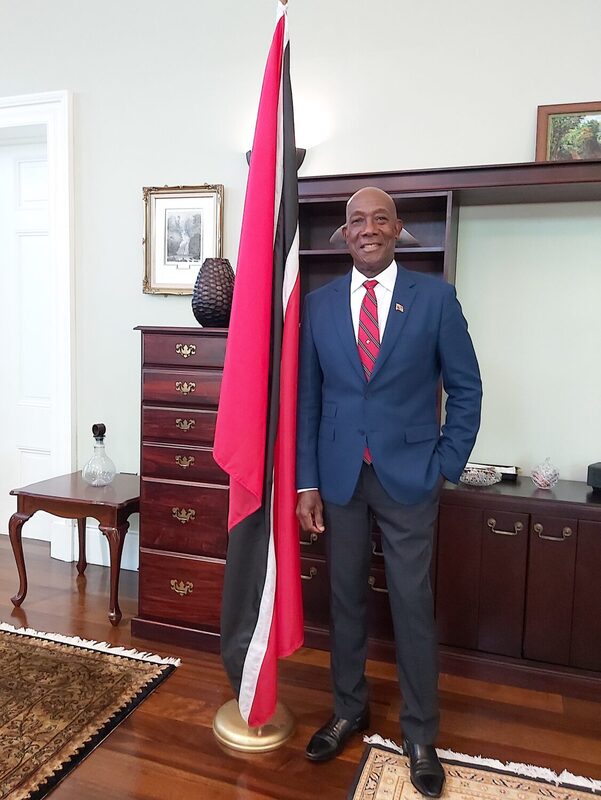

 RSS Feed
RSS Feed